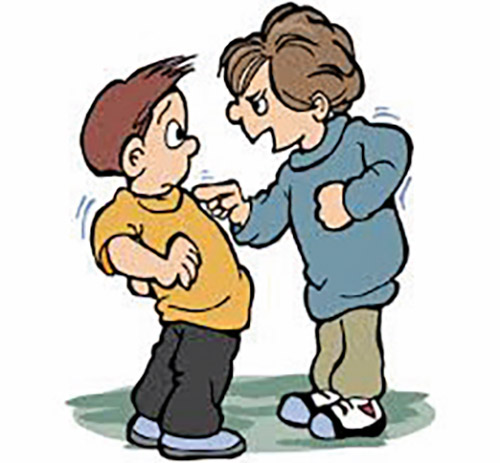

Parents: Don’t take danger to kids lightly.
Unfortunately for some children, the school year brings on anxiety, fear and sometimes even physical complaints. This can all be because of the all-too-common fear of bullying. Dismissed by many people as an expected rite of passage for schoolchildren, bullying can have long lasting and dangerous effects on both the victim and perpetrator.
Bullying happens when one child picks on another child repeatedly. Bullies try to gain control over their victims through intimidation. Usually victims are weaker, smaller, shy and more socially isolated. Bullying affects both genders.
Bullying falls into three general categories. Physical bullying involves hitting, pushing, kicking, choking or punching. Verbal bullying involves threats, taunting, teasing and put-downs. There is also social bullying, which involves excluding victims from activities or starting rumors about them.
Bullies usually strike when adults are not supervising, whether it’s in school halls, on the playground or on the way to school.
Bullying can even happen over the internet, in a rapidly evolving variant called cyberbullying. Children can be subjected to taunts, threats and teases through email or social media such as Facebook and Twitter. Some children have had to quit these websites because of the onslaught of cyberbullying.
Bullying can lead to anxiety, depression and even suicide. Bullies also do not fare well, as they become socially isolated, with fewer opportunities in society and they are more likely to be incarcerated.
Parents can help their children by asking indirect questions like, “How are things going at school?” or “What do you think of the other kids in your class?” Children who are victims of bullies are usually looking for help but are sometimes too scared or embarrassed to ask. Parents should not be judgmental upon hearing that their child is bullying or being bullied. However, they should get the story straight before bringing it up with their child.
If you believe that your child is being bullied, it is important to teach your child how to respond to bullying. He/she should be taught to look the bully in the eye, stand tall and stay calm despite intimidation and ultimately to walk away. He/she should address the bully firmly: “I don’t like what you are doing” and “Please do not talk to me like that.” Unfortunately, these skills do not come naturally for most kids, and they’ll need practice to be able to confront bullies.
However, there comes a point when the child will need additional help. At that point, the parents should inform the teacher, principal or school counselor about the problem so that they can address it at school. The parents should follow up with the school staff to make sure that the problem is being handled.
Rarely, the child may get physical complaints such as headaches, stomach aches and bedwetting because of the stress from being bullied. These problems usually get worse on Monday mornings and nights before school. If these problems occur where they interfere with your child’s daily routine, he/she should see their pediatrician.
Dr. Emmanuel Martakis
Dr. Emmanuel Martakis is a physician at Tenafly Pediatrics.











